I get it. To many people, homeschooling is weird to them—a foreign way of doing things. I wasn’t homeschooled myself, and when I was growing up, I knew very few kids who were—and they seemed a little too “off the grid” to me.
I never even considered the possibility that I would become a homeschooling dad some day.
Still, what we label as “weird” is based, in large part, on what we have come to accept as “normal.” When we see people intentionally living outside the norm, it naturally catches our eye. And perhaps it even makes us feel a little defensive or uncomfortable.
No, homeschooling isn’t for everyone. There are many venues where children can be educated well.
Still, homeschooling isn’t nearly as weird as some might think.
Consideration #1: Homeschooling enjoys a long history.
While the modern homeschooling movement in America can be traced back to the late 60’s and early 70’s, home-education goes back much further than that.
Before the advent of public education, there were two primary ways children were educated: parental education (for most people) and private tutoring (for the wealthy). For much of human history and in most civilizations, home-based education was the norm.
In the United States, school systems remained largely private and decentralized until the 1840’s. This is despite the fact that there were many loosely structured community schools scattered throughout the country. During the 19th century, more and more states eventually created compulsory education laws.
But even after public classroom education became more common, many well-known people were educated at home. These include inventors Thomas Edison and Alexander Graham Bell, authors Laura Ingalls Wilder and Robert Frost, presidents Theodore Roosevelt, Woodrow Wilson, and Franklin Roosevelt, and military leader Douglas MacArthur.
Homeschooling has a fantastic pedigree.
Consideration #2: Homeschooling is becoming more and more common.
Homeschooling is legal in all 50 states. By 1998, all 50 states had passed homeschooling laws—some more stringent and some more open than others.
According to the U.S. Department of Education, while only 3.4% of American children are homeschooled, this equals more than 1.7 million home-educated students. Between 2003 and 2012, the number of homeschooled children grew 61.8%.
Consideration #3: Homeschoolers are a diverse crowd.
The most common reason why people choose home-based education is out of concern about the environment of the schools available to them.
But parents cite many other reasons why they choose to homeschool:
- to impart particular values, moral education, and religious beliefs
- to use an educational approach other than what traditional schools offer
- to teach more material than what traditional schools teach
- to enhance family relationships between parents and siblings
- to help their child with special needs
7 Common Objections to Homeschooling (besides “homeschooling is weird”)
Many people have specific objections to homeschooling. Below are 7 of the most common objections we hear.
If you’ve every said to yourself, “I might consider homeschooling my kids BUT…” then read on:
The Social Objection: “My kids won’t be socialized.”
The Quality Objection: “My kids won’t have good study habits.”
The Higher Education Objection: “My kids won’t be prepared for college.”
The Enrichment Objection: “My kids will miss out on extra-curricular activities.”
The Financial Objection: “I can’t afford to homeschool.”
The Time Objection: “I won’t have enough time to myself.”
The Parental Objection: “My kids won’t respect me as their teacher.”
Click on any of the links above to read more about these objections to homeschooling.
What are other objections to homeschooling you’ve heard?

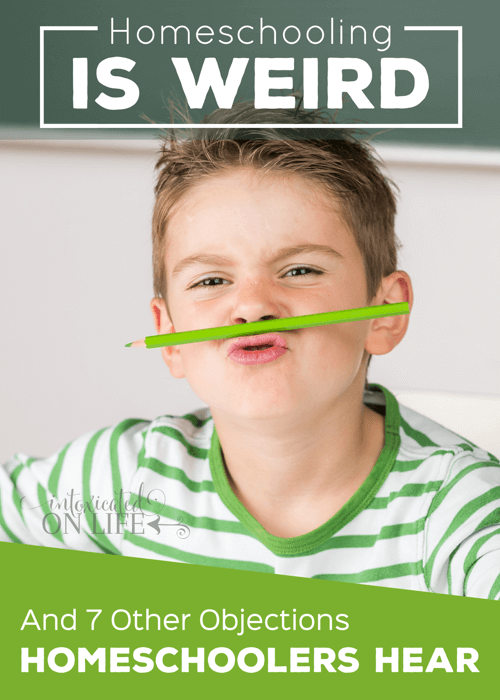
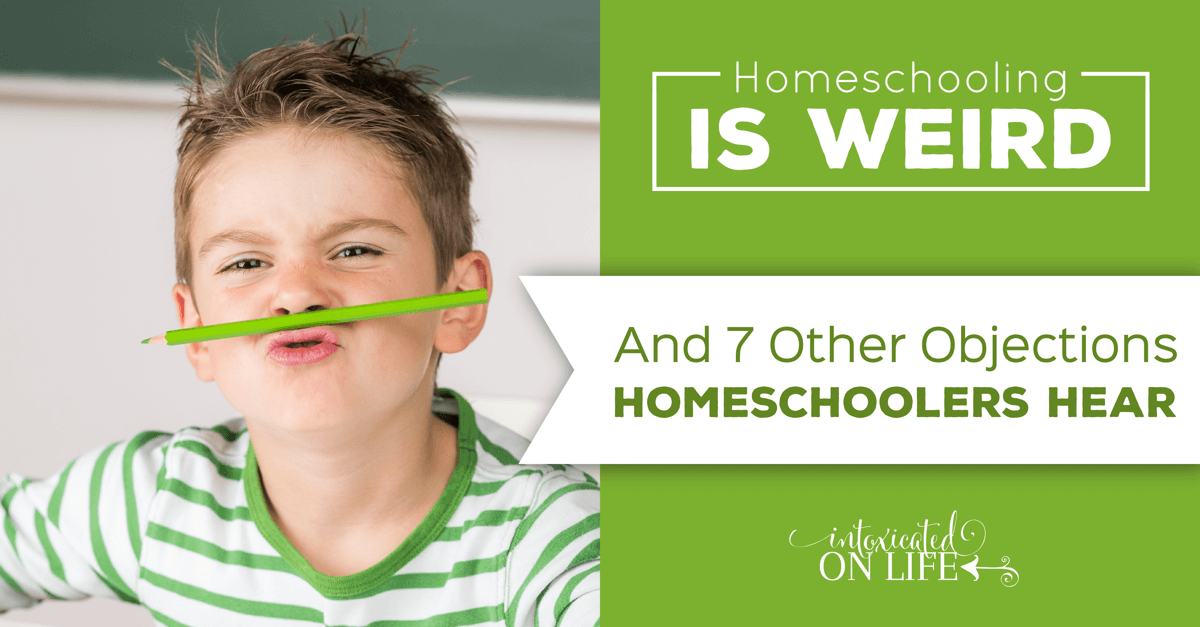
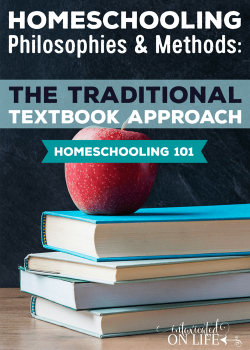
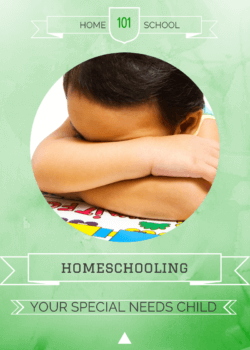


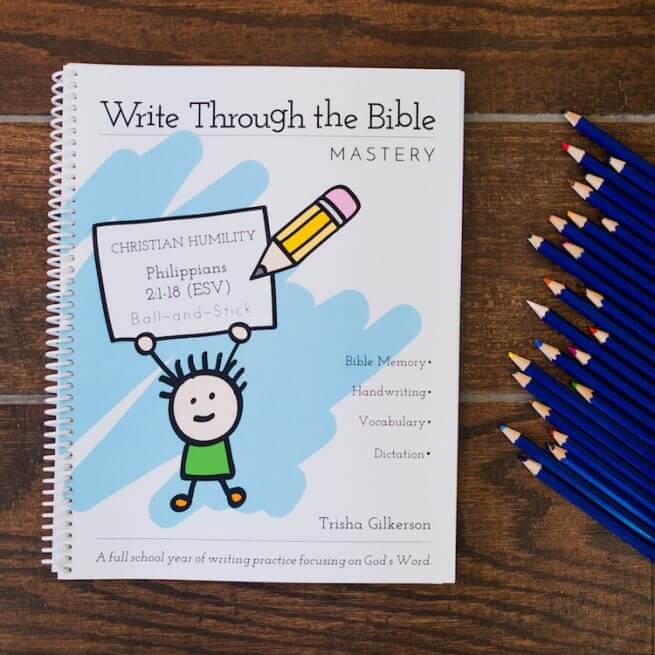
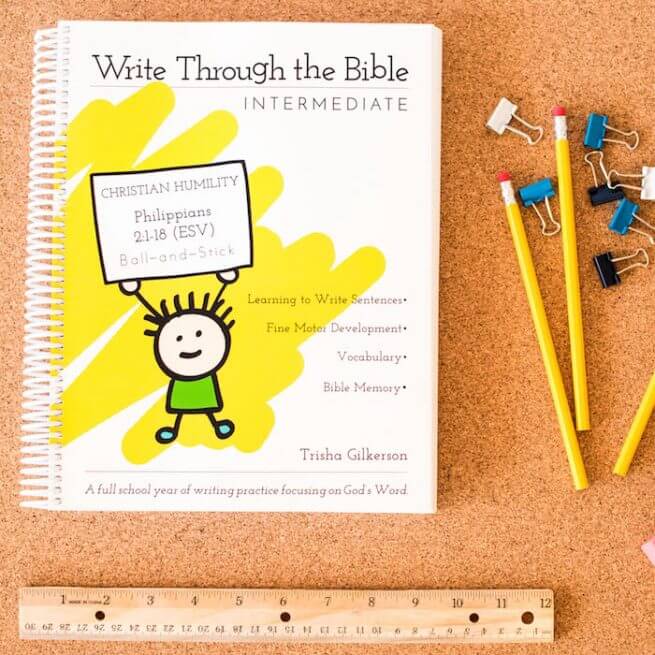
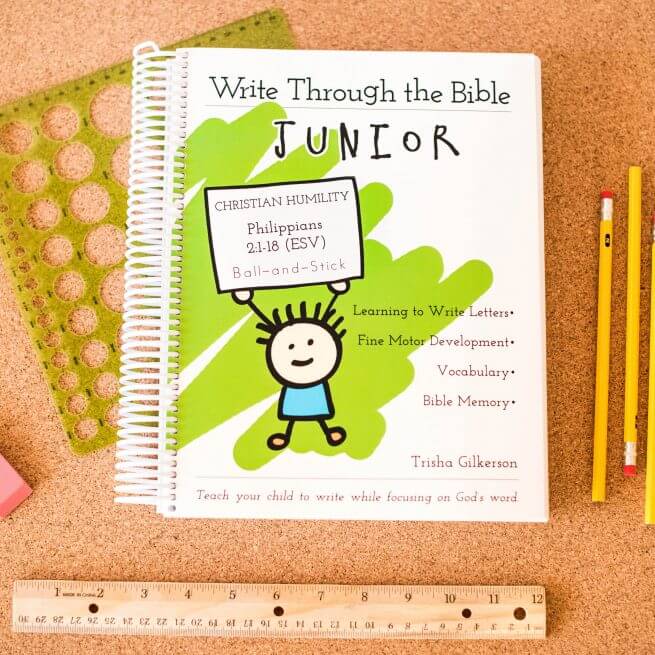
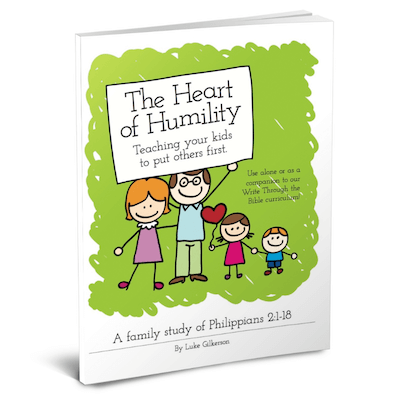

I decided to homeschool after hearing Dr. Raymond Moore 34 years ago when my twins were only a year old. I know I didn’t like the socialization I received in public school and I didn’t want it for my children. I couldn’t afford Christian schools, so this was my best option.
All children are socialized, it’s a matter of what kind? Homeschoolers have a more rounded socialization. They generally get along with a wider age range and they know both their parents and siblings better. They communicate better with adults.
About study habits and college… My twins both went to college on scholarships! One went on to get two Masters degrees. But… My third boy, didn’t go to college and because he was allowed to follow his interest in computers, he ended up in a technical job that pays more than both his older brothers together.
Back to socialization. I have two children who copy whatever they see. If they were in the public schools, they would end up in a special ed class and pick up the behaviors of the other students. No thank you! They have enough of their own.
Even people outside the church homeschool because they don’t want the negative socialization! I thought socialization had become a non-issue! Most people I talk to respect homeschooling.
The money issue… It depends on how you homeschool as to how much it costs. I get reusable curriculum that can be passed down. I find inexpensive ways to do things. It certainly costs less not try to keep up with the school fashions, buy lunches and all the other expenses associated with leaving the house five days a week.
My children enjoy people from all walks of life, all ages, different cultures, abilities. My six adult children have all chosen jobs that require a lot of interaction with a variety of people. We have a budding politician, a high school history teacher, fios technician, receptionist, balloon artist (parties and events), camp staff (five out of six), volunteer camp counselors (all 6), Awana leaders (all 6). My last two enjoy greeting people at church.
Sheltered? Yes. To start with, but my plants do come out of the green house when they are ready.
Sorry to be so long… But I have eight children and homeschool them all. Two left to go. My grandchildren are being homeschooled too. After 34 years, it’s hard not to have a few opinions…
“Homeschoolers have a more rounded socialization.” Exactly.
Socialization should be a non-issue, but it’s the number one thing people say to me here in the UK. It’s said both as an objection and an interested question. The other day I had a lady ask it, in all seriousness, while her grandson was running around in a sports class with my kids! A variant of that is the friend who said to me that the biggest problem with homeschooling was that they missed out on the playground experience. Never mind that for some people that’s the primary motivation for homeschooling.
I think for a lot of people who went to public school or private school (myself included), there are certain social “rites of passage” they remember—feuds on the playground, rushing to get to class before the bell, school bus rides, homecoming dances, etc.—and it is hard to picture childhood without these experiences. They see these experiences as somehow enriching the socialization experience.
Of course, these can be enriching experiences. They shape who we are. But parents who venture into homeschooling recognize there are a whole different set of social experiences you can have within the flexibility of home-based education.
I have one child who would have been shredded in the playground experience! He is so sensitive and other issues… No. Protecting him was important. His greenhouse experience was longer. But is gradually making his way into the real world at a pace he is able acclimate. This summer he is working at a Christian camp. He has actually been harder to understand and work with than my two with Down syndrome. You wouldn’t know. He can hold himself together for short times in public, but now he can hold himself together at home too. Yea!
Love this! Thank you so much for sharing! I love homeschooling my girls, and each year I feel so inspired to continue homeschooling even tho sometimes it gets hard. – Love
Glad you enjoyed it!
I’ve been told that I’m selfish for homeschooling because I’m not supporting what nearly all kids and our society are doing. I was asked why I couldn’t just volunteer in my child’s “regular” classroom if I wanted to be with kids–or why not become a teacher in a “real” class? Then I would not be “wasting” my skills, energy, and time at home, with just one kid.
I’ve also been told that, as Christians, we homeschoolers are not “being witnesses” in our public school, so we are “giving up” on the schools and not “letting our light shine” there.
I disagree with these statements (obviously, lol) and choose to exercise my God- and country-given freedom to educate my child away from some things (e.g., waiting in line for hours a week, rushed lunchtimes, miniscule recess times, relentless peer influences) and toward others (e.g., maximum free time, lots of family and friend time, choosing own school topics, limitless field trips).
School is SO different, in so many ways, from when we parents were little. I’m grateful that there is even this newfangled Internet thing (lol) where we can learn about pretty much anything, from experts all over the world, for *free,* and even talk about homeschooling and support each other on it. (What was that scene from Good Will Hunting–the genius janitor guy said he got his education for $1.50 in late charges at the public library? : )
Luke, thanks so much for this thoughtful, detailed post! This will be my fourth year homeschooling, and in the past I’ve been very “affected” by what others thought of our choice. I love your logical, comment-by-comment dissection of what many new homeschooling parents must be thinking and feeling. I know, when I first started, I had to generate my own list of reasons I wanted to homeschool…and it was about 10 times longer than the list of reasons not to. I’m so ridiculously grateful I’ve gotten to homeschool this long, and I hope it will be all the way through.
God is using you to encourage and embolden those who might feel confused or unsupported! Thanks again, so much.
Excellent “objections” to consider. Perhaps some more articles will be forthcoming!
Wow, what a great resource! I don’t homeschool and can’t imagine I ever will, but I have plenty of friends who do. Love your considerations and approach to the whole subject here!
(Thanks for linking up to Works for Me Wednesday!)
Glad you liked it, Mary!
We’ve never heard this objection before although we’ve heard all of the others. A big one from our families was that our children would not be prepared for the “real” world. Time will tell.
I heard this a lot growing up. I went to public school and knew very few homeschoolers, so the whole notion seemed foreign to my social circle.
I have heard all of those objections. Still did it anyway and I am pretty proud of my kids. Thanks for sharing.
This is such a thoughtful and well-written series addressing every possible concern I’ve heard regarding homeschooling. I think parents really want it to work, but they often can’t fathom how to even begin. This is a very helpful series to comfort them and walk them through their fears and objections. Thank you for helping change the tide :).
So glad you enjoyed it!